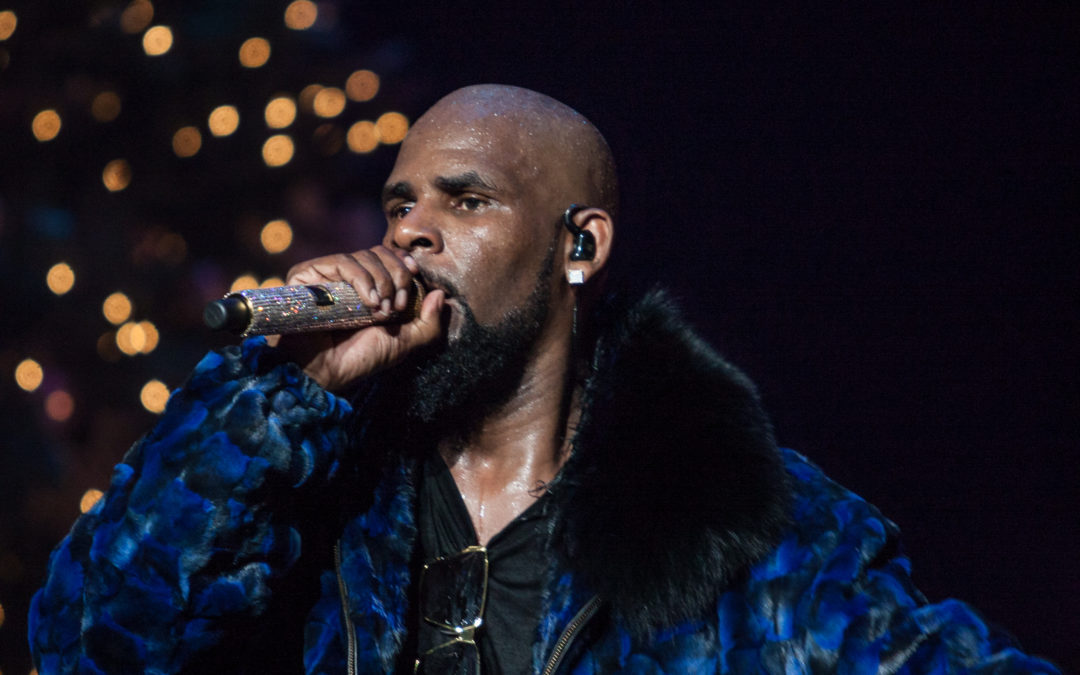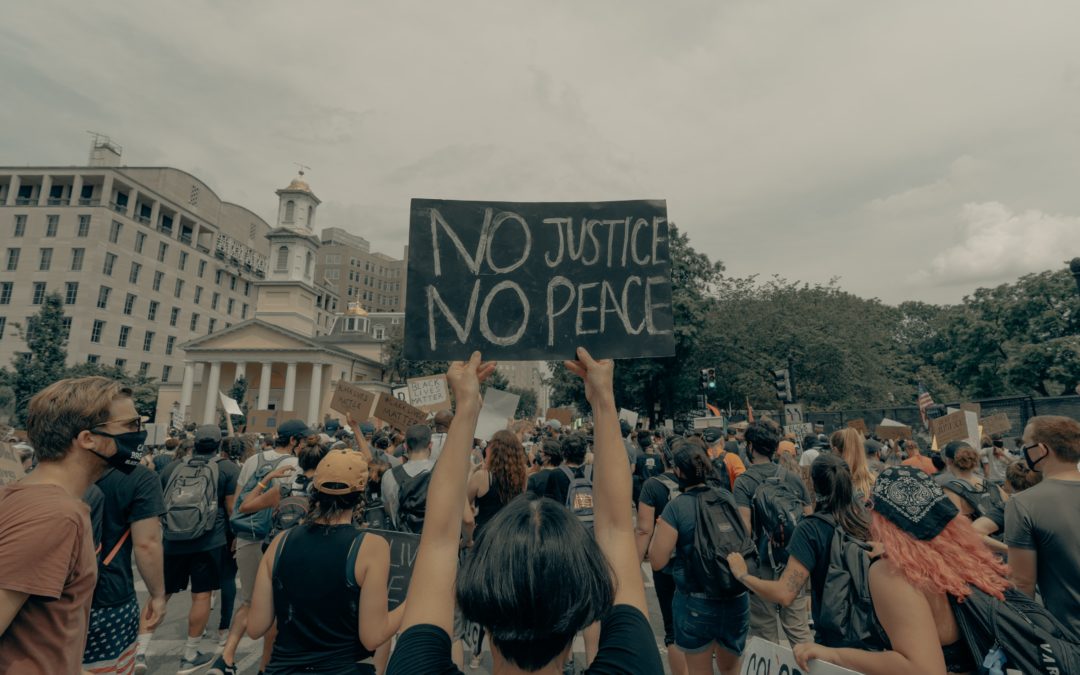
by Jonathan P-Wright | Feb 16, 2024 | Latest, Music News |
Photo by Tingey Injury Law Firm on Unsplash
Lizzo, the chart-topping sensation known for her anthem “Good as Hell,” faces a significant legal hurdle. According to Billboard, the case against her, filed by three former dancers, will proceed to trial. The lawsuit accuses the singer of sexual harassment, a charge she has strongly contested.
Prologue: The Filing of the Lawsuit
Last year, three of Lizzo’s former backup dancers, Arianna Davis, Crystal Williams, and Noelle Rodriguez, filed a lawsuit alleging several instances of sexual, religious, and racial harassments. They claimed that Lizzo and her team subjected them to sexually denigrating behavior, weight-shaming, and forced them to participate in disturbing sex shows.
The Anti-SLAPP Motion
In response, Lizzo filed an anti-SLAPP motion in August. She argued that her dancers’ accusations originated from her exercise of free speech rights on public issues. Her lawyers contended that the lawsuit was a tactic to “silence” her.
The Court’s Stand
The judge’s ruling emphasized the delicate balance between protecting constitutional rights and addressing misconduct allegations. “It is dangerous for the court to weigh in, ham-fisted, into constitutionally protected activity,” the judge wrote. “But it is equally dangerous to turn a blind eye to allegations of discrimination or other forms of misconduct merely because they take place in a speech-related environment.”
The Allegations
The lawsuit against Lizzo, her production team, and Shirlene Quigley, captain of her dance team, includes several serious allegations. The plaintiffs claim Lizzo and her team subjected them to various forms of harassment and discrimination, including:
- Weight-shaming
- Sexual denigration
- Forced participation in disturbing sex shows
- Religious and racial discrimination
The Aftermath: Dismissal and Continuation
While the judge dismissed some allegations, such as a sexual harassment claim on the set of Lizzo’s Watch Out for the Big Grrrls and a disability discrimination accusation, several charges of sexual harassment and discrimination will still face scrutiny in court.
The Lawyer’s Statement
The dancers’ lawyer, Ron Zambrano, expressed satisfaction with the judge’s ruling, calling it a victory. Despite the dismissal of some allegations, he highlighted that the remaining claims include sexual, religious, and racial discrimination, false imprisonment, and assault.
Lizzo: A Public Figure Under Scrutiny
The ruling also emphasizes that fame does not insulate celebrities from being held accountable for alleged misconduct. Lizzo, like any other public figure, is not exempt from facing the consequences of her actions if found guilty.
Awaiting Trial
As the case heads to court, the world will be watching closely. The trial is expected to be a spotlight on the dark side of celebrity culture, exposing the potential misuse of power and influence in the music industry.
Conclusion
The case against Lizzo is a stark reminder of the ongoing battle for social justice in our society. It underscores the necessity for accountability, regardless of one’s status or influence. As the legal proceedings unfold, the truth will eventually surface, setting a precedent for future cases involving celebrities and sexual harassment allegations.
“It is dangerous for the court to weigh in, ham-fisted, into constitutionally protected activity. But it is equally dangerous to turn a blind eye to allegations of discrimination or other forms of misconduct merely because they take place in a speech-related environment.” – Judge
Respect for all, accountability for actions, and the pursuit of justice remain the pillars of our society. As we follow Lizzo’s case, we are reminded once again of their importance.

by Jonathan P-Wright | Jan 18, 2024 | Latest, Music News |
R. Kelly, the famed artist, recently claimed oblivion to a lawsuit that led to a court awarding six women a whopping $10.5 million. The lawsuit was in response to alleged threats that resulted in the cancellation of the docuseries screening, Surviving R. Kelly.
The Unnoticed Lawsuit
According to court documents that TMZ managed to acquire, Kelly insisted that he would have contested the lawsuit if he had been cognizant of it. The singer pointed out that he was overwhelmed with legal issues and had to modify his legal counsel. Amidst these changes, this particular lawsuit might have slipped through unnoticed.
“In case he did receive the lawsuit, Kelly argues his linguistic capability is equivalent to a grade schooler’s, and he heavily relies on his lawyers for an understandable explanation.”
This statement underscored the artist’s alleged inability to fully comprehend the lawsuit’s implications.
Allegations and Threats
R. Kelly, along with his then-manager Donnell Russell, were accused of persistently threatening six women who were featured in the Surviving R. Kelly docuseries. The duo also reportedly intimidated the women and the docuseries producers with potential legal action.
“The lawsuit alleges that a Dec. 2018 screening in New York City was called off after someone from Kelly’s team threatened to ‘shoot up’ the venue.”
The Blame Game
In the latest court documents, Kelly disputed Russell’s role as his manager and suggested that if Russell was the source of the threat leading to the screening’s termination, the blame should be placed solely on Russell.
“He did that for his own reasons,” Kelly stated, distancing himself from Russell’s actions.
Russell was consequently sentenced to a year in prison due to the lawsuit’s fallout.
A Heavy Sentence
R. Kelly was handed a 30-year prison sentence in 2022 after being found guilty of racketeering and sex trafficking. Additionally, he was sentenced to 20 more years for child sex crimes, marking a dramatic fall from grace for the celebrated artist.
Conclusion
The R. Kelly saga underscores the importance of accountability and transparency in the music industry. Despite the artist’s claims of unawareness, the court’s ruling speaks volumes about the alleged misconduct. As music news continues to unfold, we can only hope for justice and a safer environment for artists and fans alike.
As the R. Kelly story continues to unfold, it serves as a stark reminder of the importance of accountability and transparency within the music industry. Regardless of the artist’s claims of unawareness, the court’s ruling sends a clear message about the allegations of misconduct. As this music news continues to unfold, we can only hope for justice and a safer environment for artists and fans alike.

by Laghe Andrews | Dec 14, 2023 | Latest, Social Justice |
Hip-hop artist Lil Durk finds himself embroiled in a legal tussle with financial technology company, Exceed Talent Capital. The rapper, whose real name is Durk Derrick Banks, is accused of fraudulent dealings involving the rights to his music track “Bedtime.” The lawsuit, filed in a New York court, seeks a hefty sum of $12 million in damages.
The Allegations
In court documents viewed by Music Business Worldwide, Exceed Talent Capital alleges that the rapper agreed to sell them the rights to “Bedtime.” This agreement was made despite an existing exclusive contract between Lil Durk and Alamo Records, a subsidiary of Sony Music Entertainment.
“Exceed Talent Capital acquired the “Bedtime” rights for $600,000, only to discover later that Durk had previously assigned the same rights to a third party.”
This alleged double dealing has landed the rapper in hot water, with the fintech startup seeking recompense for the hefty sum it paid for the rights.
The Fallout
Exceed Talent Capital claims that the fallout from the failed deal has caused significant harm to its reputation and relationships with partners and investors. The company had already paid $450,000 of the $600,000 owed when it was notified by Alamo Records about Durk’s exclusive recording agreement. The revelation forced Exceed to return the funds invested by third parties.
The list of defendants in the lawsuit extends beyond Lil Durk. Manager Andrew “Dilla” Bonsu, Only The Family Entertainment, Inc, OTF Label, and firm TTPMG are also implicated in the legal action.
Prior Partnership with Exceed
Before this dispute, Lil Durk and Exceed had announced a partnership in October last year. The partnership aimed to offer fans a “Trenches All-Access Pass,” akin to an NFT. This pass promised access to a private Grand Theft Auto roleplay server created by the rapper, which at the time had a waitlist of over 15,000 users.
Fans were offered lifetime access, limited edition in-game wearables, and a chance to invest in shares from proceeds of “Bedtime.” However, this partnership has taken a sour turn with the recent allegations.
The Music Industry’s Response
The music industry has responded with mixed reactions to the lawsuit. Last week, it was reported that the artist formerly known as Kanye West expressed interest in buying out Durk’s contract from Sony. This comes as a significant development, given the high-profile nature of both artists.
Conclusion
As the legal proceedings continue, the future of Lil Durk’s music career and his relationships with music labels and tech companies remains uncertain. The outcome of this case could potentially have far-reaching implications for the music industry and the intersection of music and technology.
The case serves as a reminder of the importance of transparency and integrity in business dealings, particularly in industries like music where intellectual property rights are paramount. It remains to be seen how Lil Durk will respond to these allegations and what impact this will have on his career and reputation.

by Jonathan P-Wright | Jul 14, 2023 | Latest, Social Justice |
Photo by Clay Banks on Unsplash
In a disappointing turn of events for the survivors of the Tulsa Race Massacre, a lawsuit seeking reparations has been dismissed by an Oklahoma judge. This ruling, although disheartening, does not signify the conclusion of the prolonged legal struggle that has spanned several years. Tulsa Race Massacre survivors still have the option to file an appeal and continue their pursuit of justice.
The lawsuit, brought forth by the survivors of one of the most devastating racial incidents in American history, sought reparations for the atrocities committed during the Tulsa Race Massacre of 1921. The survivors, who have carried the weight of this painful history for decades, hoped that their lawsuit would bring recognition, restitution, and healing for the harms inflicted upon them and their families. However, the recent dismissal by the Oklahoma judge has posed a setback to their efforts.
Despite this setback, the fight for justice is far from over. The survivors and their legal representatives have the opportunity to file an appeal, ensuring that their voices are heard and their claims for reparations are given due consideration. This continued pursuit of justice speaks to their resilience, determination, and unwavering commitment to seek accountability for the horrific events that unfolded more than a century ago.
The Tulsa Race Massacre remains a dark stain on the pages of American history, and its impact continues to reverberate through generations. The survivors’ pursuit of reparations not only aims to address the historical wrongs inflicted upon them but also seeks to shed light on the broader systemic issues of racial injustice that persist today.
As the survivors and their legal team navigate the appeals process, they stand united in their quest for truth, acknowledgement, and reparative measures. Their resilience serves as a reminder that the wounds of the past cannot be ignored or brushed aside. The Tulsa Race Massacre survivors’ determination to hold those accountable for the harm caused to their community serves as an inspiration for all those striving for equity, justice, and reconciliation.
While the road ahead may be challenging, the survivors of the Tulsa Race Massacre remain steadfast in their pursuit of reparations. Their courage in the face of adversity and their unwavering commitment to seeking redress for the injustices of the past will continue to shape the ongoing fight for racial equality and healing.

by Tanyette McCoy Davis | Jan 17, 2023 | Latest, Social Justice |
In Oklahoma, a former employee of American Piping Inspection, Inc. will receive $250,000 after claiming to have experienced racial discrimination at the company. According to the lawsuit, the employee, who is Black, was subjected to a hostile work environment in which his white supervisor made racially charged comments and jokes about shooting Black people. The supervisor also allegedly told the employee that he was “lucky” he wasn’t born in Africa, where he would have been killed or sold into slavery. The employee reported the incident to human resources, but no action was taken.
The supervisor also allegedly used racial slurs when referring to other Black employees. When employe complained to management about the harassment, he was told that his supervisor was “just joking” and that he should “take it like a man.” Johnson was eventually fired after he refused to sign a written warning that had been issued to him for allegedly not following safety procedures.
The EEOC’s lawsuit claimed that American Piping Inspection, Inc. violated federal law by subjecting an employee to a racially hostile work environment and then firing him in retaliation for complaining about the harassment. Under the terms of the settlement, American Piping Inspection, Inc. will pay Johnson $250,000 and will provide training on anti-discrimination policies and procedures for all employees.








RECENT COMMENTS